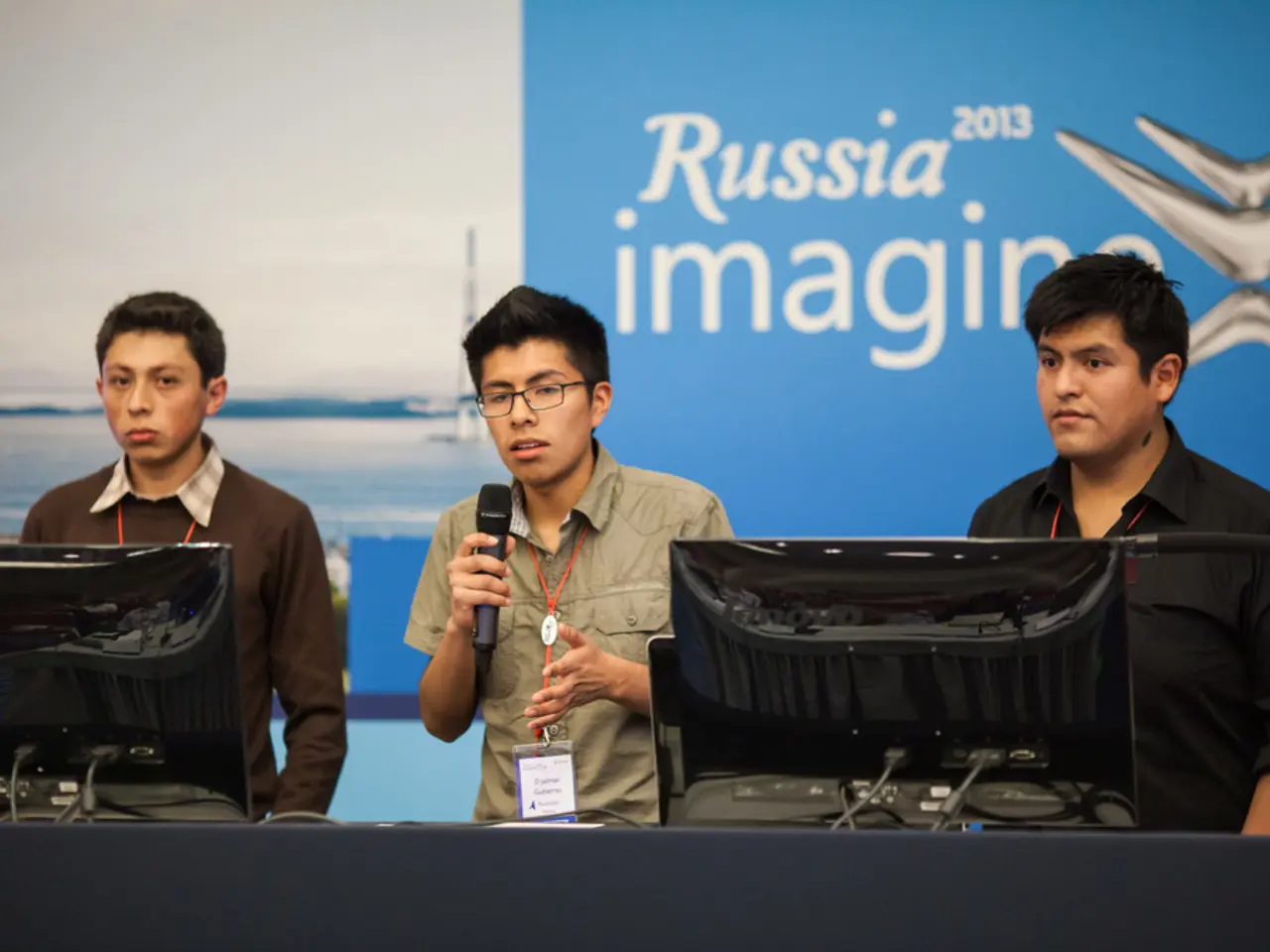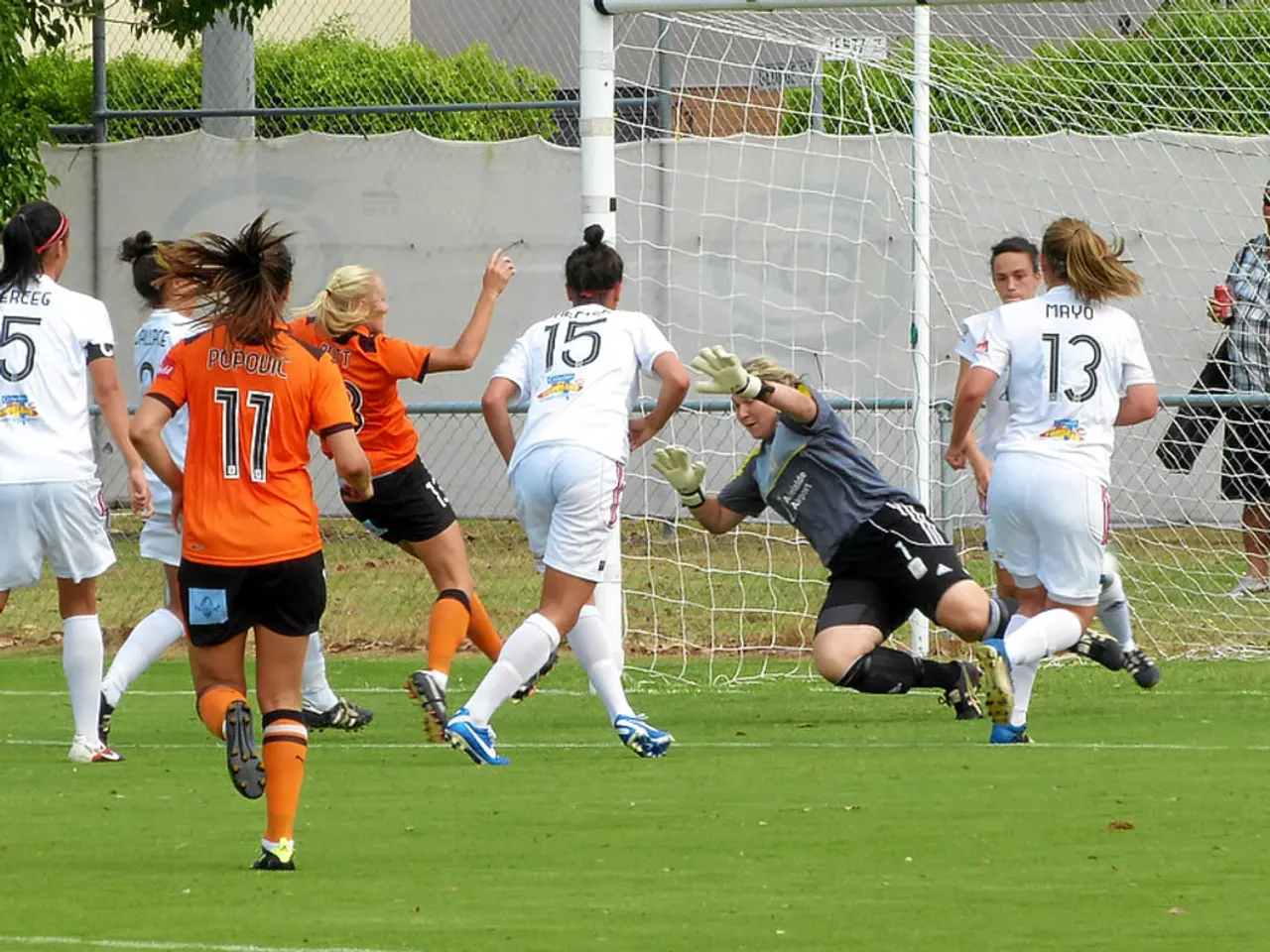Sounding the Alarm: Friedrich Merz Warns of Russia's Looming Threat to Europe's Peace and Order
Russia Issues Threat to Europe's Entire Political Structure - Russia Issues Grave Warning on Potential Deal with EU, Declaring Possible Rupture of European Political Structure
NATO partners aim to increase their defense and infrastructure spending to avoid the wrath of Donald Trump. The alliance plans to reach at least 3.5% of GDP on defense and 1.5% on defense-related infrastructure by 2035, following a proposal by NATO Secretary General Mark Rutte.
German Chancellor Friedrich Merz reiterates that NATO's decisions aren't to curry any favors. The alliance acts on its own volition based on the necessity for European partners to strengthen their defense capacities in the face of growing challenges.
- Friedrich Merz
- Russia
- NATO
- NATO Partners
- CDU
- Defense Spending
- Threat
- Europe
- The Hague
- Ukraine
- NATO Summit
A no-nonsense leader with a clear vision, Merz views Russia as not just a troublemaker in Ukraine but a menace to the entire European political landscape. He fears that Russia may escalate its aggression beyond Ukraine's borders, posing a grave threat to the continent's peace and stability [4][5][1].
At the 2025 NATO summit held in The Hague, Merz argued in favor of stepping up defense investments to combat this threat. He urged the alliance to set a new target of 5% of GDP for defense spending by 2035, with 3.5% allotted for core military capabilities and the remaining 1.5% for defense-adjacent sectors like cybersecurity and infrastructure [2][3][4]. Merz emphasizes that this is an internal decision driven by European conviction rather than a move to pander to the U.S. or its president [1][4][5]. In fact, Germany is already ahead of the curve, aiming to meet the 3.5% core defense spending target by 2029 [1][5].
The implications for Europe's political order are far-reaching, with three key takeaways:
- ** heightened security and deterrence:** Increased defense spending aims to deter Russian aggression and bolster capabilities for potential conflicts, fortifying Europe's security architecture [1][4][5].
- ** greater European autonomy:** By investing heavily in defense, Europe is asserting its willingness to shoulder more responsibility for its security, reducing reliance on American guarantees and potentially promoting European cohesion within NATO [3][4][5].
- ** challenges in politics and finance:** The financial commitment entailed by the defense spending hike requires substantial political will and financial resources, potentially straining national budgets and testing the political unity of NATO members [3][5].
- ** solidifying alliance unity:** The enhanced defense investments serve as a response to U.S. demands, notably from former President Donald Trump, and aim to demonstrate NATO solidarity and commitment to collective defense, underpinning the alliance's credibility and cohesion [2][4][5].
Ultimately, Merz advocates for a Europe that stands up to Russia, investing heavily in defense to protect its citizens and values [1][4][5].
- Friedrich Merz advocates for increased defense spending within NATO as a means to confront Russia, viewing it as a significant threat to the political landscape of Europe.
- At the 2025 NATO summit in The Hague, Merz proposed a new defense spending target of 5% of GDP by 2035, emphasizing that this decision is driven by European conviction and not an attempt to pander to the U.S. or its president.


![Authority Over "Sizable Testicles" Ends [Update: Persistence of "Sizable Testicles" Control?]](/en/content/images/size/w1280/format/webp/20250627001249_big-balls-government-data-access-government-efficiency-data-breach-investigation-government-systems-government-waste-government-fraud-government-transparency-government-employee-roles-government-agencies-government-ai-use-government-forensic-accounting-government-cybersecurity-government-policy-government-snack-food-company.jpeg)



